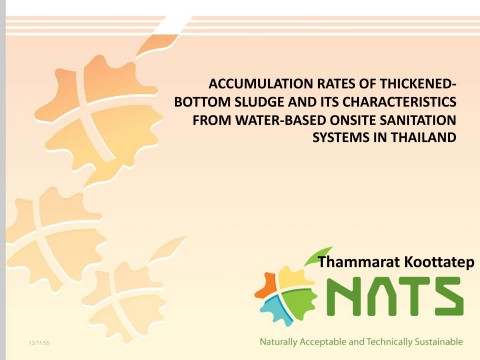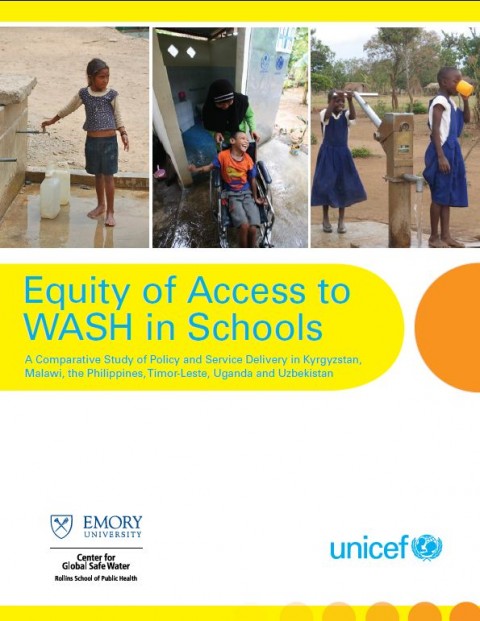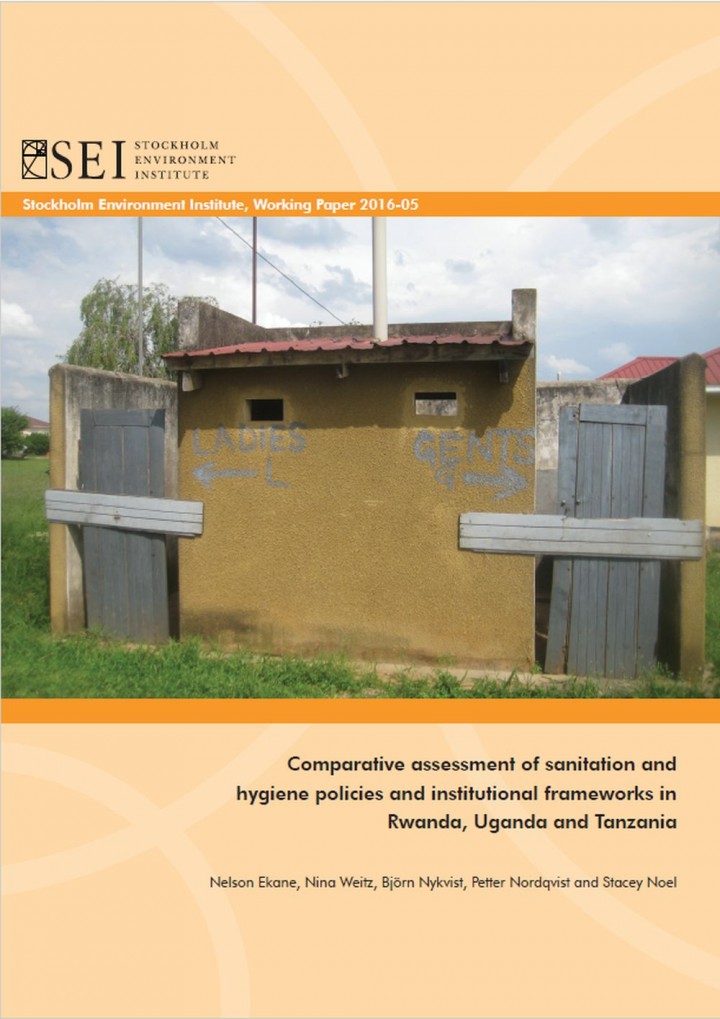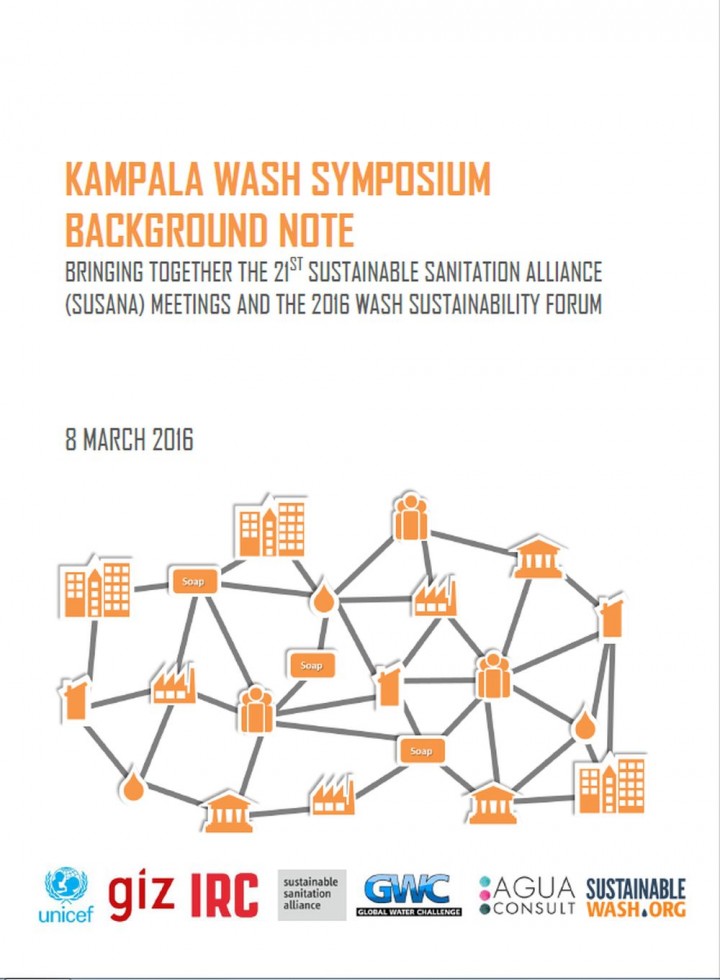Searching for information on Sanitation Workers?
The Sanitation Workers Knowledge + Learning Hub is the best source for all current news, trends, articles and updates on sanitation workers rights around the world.
This library entry contains background documents for a grant that Thammarat Koottatep is leading and which is funded by the Bill and Melinda Gates Foundation.
Further information and a discussion is available on the SuSanA discussion Forum, see link below.
Short description of the project:
The project seeks to reinvent technologies for decentralized wastewater management that is Naturally …
During the last years EcoSan Club was partner of the ROSA project. The ROSA (Resource-Oriented Sanitation concepts for peri-urban areas in Africa) project proposed resources-oriented sanitation concepts as a route to sustainable sanitation and was funded within the EU 6th Framework Programme, Sub-priority "Global Change and Ecosystems". The project had duration from October 2006 to March 2010 and …
This rapid assessment reviewed sanitation activities by Catholic Relief
Services (CRS) in East Africa, in particular the promotion of the Arborloo
– an innovative latrine designed to help achieve sustainable and scalable
sanitation improvements in rural Ethiopia, South Sudan, Kenya and Uganda. The assessment explored the factors affecting Arborloo acceptance and sustainability, the scope and …
Water, sanitation and hygiene education in schools – WASH in Schools – provides a healthy and comfortable environment that helps improve children’s health and boosts educational attendance and achievement. Schoolaged children in many countries, however, are unable to benefit from adequate access to WASH in Schools. Although all children are affected by lack of access, vulnerable populations …
The international debate on the question of whether shared and/or public sanitation facilities should be considered improved is still open. The concern is that a shared sanitation facility cannot be maintained in hygienic conditions when used by too many people. The analysis of 1’500 randomly selected toilets in the urban slums of Kampala showed that only 22 percent of households have access to …
The urban affordable clean Toilets (U-ACT) project, headed by the Centre for Development and Cooperation (NADEL) of the Swiss Federal Institute of Technology (ETHZ), aims at overcoming the constraints to private sanitation investment in poor urban areas. Field research was conducted in 40 randomly selected low-income areas of Uganda's capital Kampala where people rely on on-site sanitation. The …
These five fact sheets about interventions present case studies from Zimbabwe, Ethiopia, and Uganda and show the effects of different strategies that were applied in order to achieve behavior changes.
Intervention fact sheet 1:
Achieving long-term use of solar water disinfection in Zimbabwe
Household water treatment can guarantee safe drinking water to prevent diarrhea and cholera. However, …
This library entry contains background documents for a grant that Daniel Okello (Phase 1) and Najib B. Lukooya (Phase 2) are leading and which is funded by the Bill and Melinda Gates Foundation.
Further information is also available on the SuSanA discussion forum, see link below.
Kampala city has a population of 1.5 million people with an estimated day population of 3.5 million. On average, two million people move through the city and need to use public/community sanitation facilities.
Section 35 of the KCCA Act 2010 mandates KCCA to provide safe sanitation facilities in communities. While fulfilling this obligation, KCCA and partners have constructed about 560 …
Sanitation issues are some of the most significant development challenges for Kampala City, Uganda. Like many other capital cities in developing countries, Kampala is experiencing rapid population and economic growth. However, provision of key services including adequate sanitation for the city population has not been in tandem with these developments.
In Uganda, piped sanitation systems are …
In Kampala, about 90% of the people rely on on-site sanitation solutions, which cannot be considered “improved” or “acceptable” in most cases: too many households share one toilet; pit-latrines are unlined, filled with solid wastes, and hard to access for emptying services, ultimately leading to filled-up facilities that are either abandoned or directly emptied into the environment, …
Kampala city has a population of 1.5 million people with an estimated day population of 3.5 million. On average, two million people move through the city and need to use public/community sanitation facilities.
Section 35 of the KCCA Act 2010 mandates KCCA to provide safe sanitation facilities in communities. While fulfilling this obligation, KCCA and partners have constructed about 560 …
Policies are considered critical for creating an enabling environment for improving access to sanitation and hygiene services. There are, however, certain requirements that policies must meet for them to be coherent and supportive. This paper presents a comparative assessment of the sanitation policy and institutional frameworks in Rwanda, Uganda and Tanzania based on a …
To this end the Kampala WASH Symposium, held in Uganda in June 2016, looked beyond the conventional notion of ‘projects’ to explore how we, as WASH actors, can and should work together within the wider complex systems that deliver services. With participants and presentations from governments, donors, researchers, and practitioners, this event brought emerging thinking on how to drive …
The sanitation situation in most of Kampala can be summarized as follows:
About 90% of it’s population relies on on-site sanitation facilities (pit latrines and septic tanks) whereas 50% of households share one sanitation facility, leading to unhygienic conditions.
More than 50% of pit-latrines are un-lined and filled with solid waste and only 20 – 25% of the toilets have ever been emptied …
GIZ-RUWASS program is supporting the improvement of the Ugandan water and sanitation sector through various projects. Amongst these projects is the USAID and GIZ co-funded project 'Capacity development of Town Councils to design and implement integrated and sustainable town sanitation plans'. The objective of the project is to make use of Town Sanitation Plans as a basis for planning and …








































